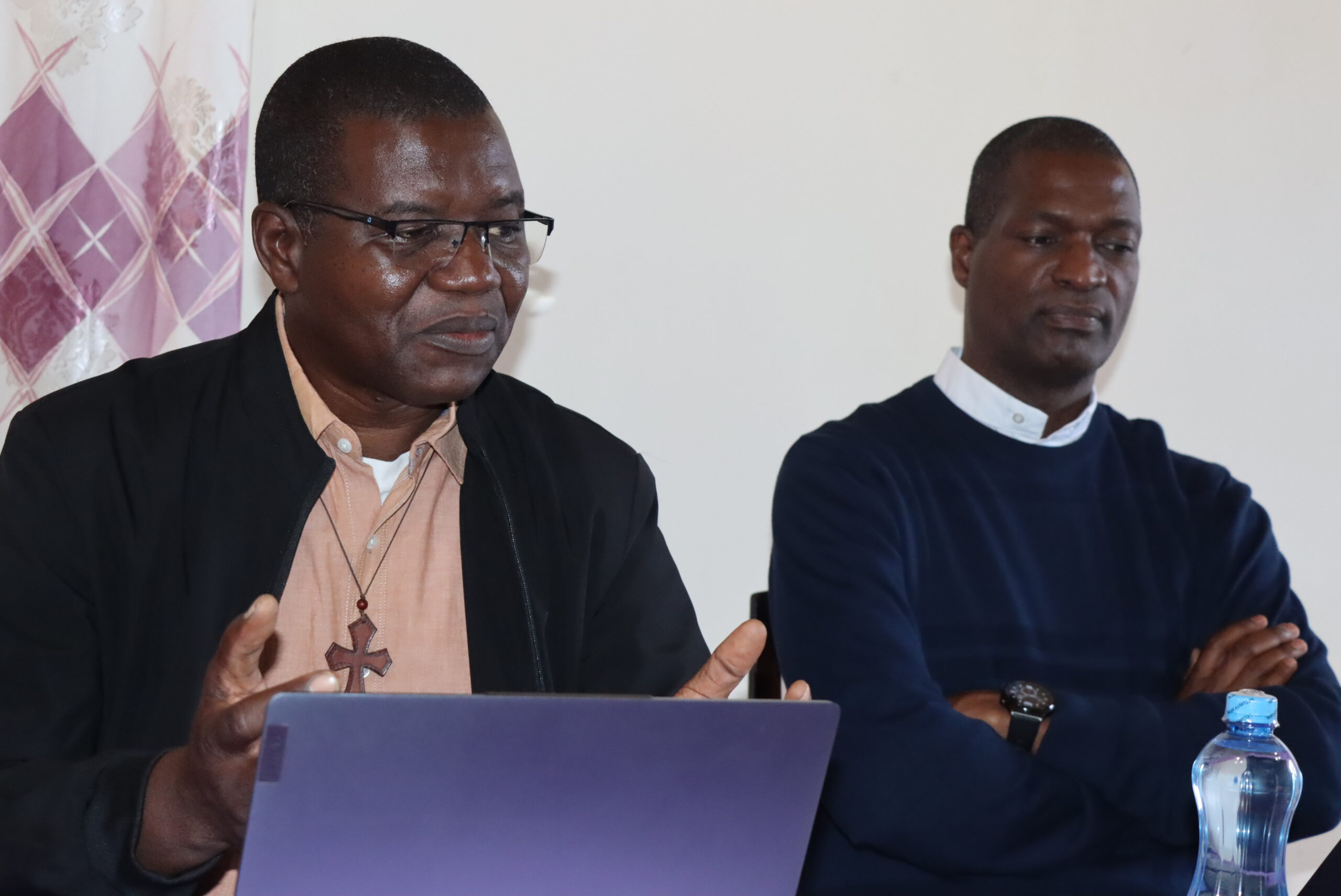AMECEA: National Communication Coordinators Urged to Beware of Pitfalls in the Digital World

National Communication Coordinators
Sr. Jecinter Antoinette Okoth, FSSA
National Communication Coordinators from the Association of Member Episcopal Conferences in Eastern Africa (AMECEA) during their annual planning meeting at Donum Dei, in Nairobi, have been advised that as people embrace the digital age and engage digitally unlike before, it is prudent to be cautious of its dangers and know how to interact better since the current concern is not the question of engaging with the digital world, but how.
Basing his message on the document that was published by the Vatican’s Dicastery for Communication titled, ‘Towards full presence: A pastoral reflection on Engagement with Social Media,’ Fr. John Gbembeyo the Communications Coordinator for Sudan and South Sudan Bishops Conference (SSCBC), highlighted that as communicators, “We should know that there is tension resulting from those born in the digital culture and are “digital natives” and those who are “digital immigrants.”
He continued pointing out some of the challenges saying, “There exists a digital divide between people who already engage with the Social Media and understand it better, and those who still lack basic needs.”
In this case, the South Sudanese cleric said, “The pastoral reflection encourages believers to be communicators who move intentionally towards encounters that are meaningful and lasting rather than superficial but well-oriented digital connections towards encountering real persons.”
According to the document that was published by the Vatican mid this year, even though it is important to appreciate the digital world and recognize it as part of our current life, being aware of the digital pitfalls helps “to discern and unmask the logic that pollutes the social media environment and to search for a solution to such digital discontent.”
As people interact in the digital space which Vatican officials call the “digital pathway” many people are hurt by division and hatred, a situation that cannot ignored.
“We cannot be just silent passersby. To humanize digital environments, we must not forget those who are “left behind”. We can only see what is going on if we look from the perspective of the wounded man in the parable of the Good Samaritan,” reads part of the Vatican’s pastoral reflection.
While addressing dozens of participants during the two-day meeting on 12th and 13th December, Fr. Gbembeyo narrated that the inspiration from the parable of the Good Samaritan, the document aims to initiate a common reflection to foster a culture of being “loving neighbors” in the digital sphere.

“Being loving neighbors means being genuinely present and attentive to each other on our common journey along the digital highways,” the priest said adding that by becoming “weavers of communion,” “we can envision a new model community built on trust, transparency, and inclusion, learning to be present in God’s style and bearing the mark of witness.”
In the Vatican’s document, they narrated, “The parable of the Good Samaritan, instead, challenges us to confront the digital “throw-away culture” and help each other to step out of our comfort zone by making a voluntary effort to reach out to the other. This is only possible if we empty ourselves, understanding that each one of us is part of wounded humanity, and remembering that someone has looked at us and had compassion on us.”
To the healing of the wounds created by a toxic digital environment Fr. Gbembeyo said: “We need to allow our community relations on social media networks strengthen local communities and vice-versa. Additionally, we need to use the net as an extension or expectation of such Christian encounters which does not betray relationships but remains a resource for communion, knowing that on the other side of the screen, there are no “numbers” or mere aggregates of individuals” but people who have real stories, dreams, expectations, sufferings. That is there is a name and a face.”
In conclusion, Fr. Gbembeyo said that even in an environment filled with “information overload,” the attitude of intentional listening and openness of the heart “makes it possible for us to move from mere awareness of the other to a genuine encounter.”


